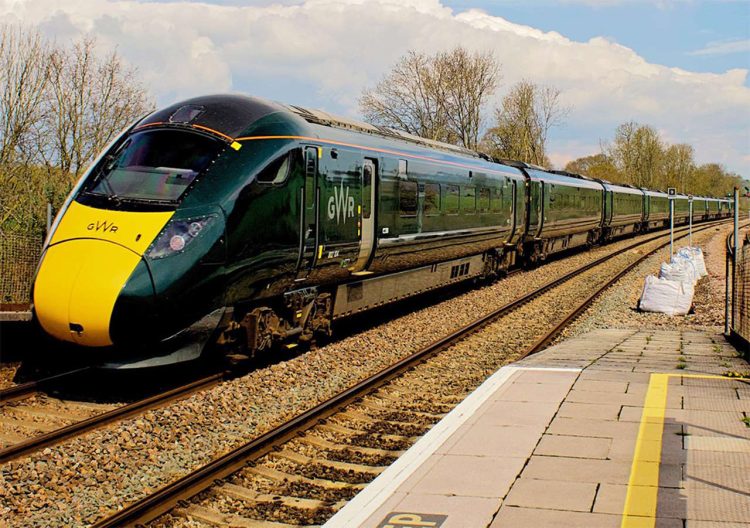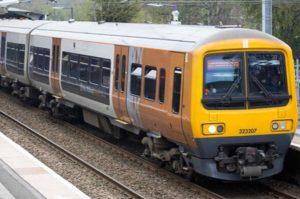The Rail Delivery Group has announced plans for a consultation into ticket offices at railway stations.
The consultation could see the closure of ticket offices, and staff moved into more customer-facing roles.
You can read more on the plans by clicking here.
As you can expect, a number of groups are responding to the news, and here is what the rail industry has said:
Commenting, TSSA Interim General Secretary, Peter Pendle said: “We will continue to oppose ticket office closures which make no sense when it comes to running a railway for all and building up services in the post-Covid era.
“Ticket office staff are hugely valued by the travelling public, and we urge commuters to resist these foolish plans by sending the government a crystal-clear message that they are on the wrong track.
“However, what we are seeing today from the train companies – no doubt pushed by the government – is widespread plans for redundancies by the back door. This amounts to the shredding of the settlement we reached which ended our involvement in the national rail dispute and has left members furious.”
Steve White, Managing Director of Southeastern said: “The world has changed and Southeastern wants to change with it by offering a better, more reliable, and sustainable railway. An overhaul of the way we operate our stations is long overdue.
“Customers love our people not our ticket offices. This consultation proposes making more of our people available to help customers face-to-face providing a wider range of support, including accessibility assistance and deterring anti-social behaviour. It proposes introducing 14 travel centres at our busiest stations and restaffing 18 stations, currently unstaffed due to vacancies.
“Most customers now buy tickets on their phones in simple, queue-free, transactions or use Pay-As-You-Go. Five million e-tickets are now sold weekly by train companies and retailers like Trainline. With customers buying holidays, shopping and banking online they can now also buy rail tickets on their phone at a time that suits them.
“For those happy to use self-service, buying a ticket will be as easy as possible whether on our app, website or at our ticket vending machines (TVMs) and this consultation will ensure they can do that.
“For customers who need ticketing assistance this will remain available through our travel centres, station colleagues and 24/7 helpline for assisted travel.
“At the same time, we want to reduce taxpayers’ subsidy of our business and ensure a sustainable future as a vital public service. The aim is to provide a better service at a lower cost.
Southeastern is committed to a meaningful consultation. Everyone with an interest is encouraged to share their views with London TravelWatch (for our stations in London) or Transport Focus – the organisations who will administer the consultation.”

A spokesperson for GWR said: “Digital tickets have made it easier and faster for customers to buy and manage tickets online, which means fewer people than ever are using ticket offices.
“With 85% of ticket sales taking place outside a ticket office on the GWR network, we think it makes sense to put our people where they can be most help to customers.
“This consultation is designed to allow the public to test and examine our proposals, and make sure our plans are compliant with the safeguards put in place at privatisation so that the needs of customers will still be met.”
Claire Mann, Managing Director, South Western Railway, said: “In developing our proposal to modernise and update our stations, we’ve focused on delivering improvements for our customers, while also recognising that our people are the key to doing so.
“Our station colleagues play a vital role in delivering a positive customer experience. This proposal recognises their talent and dedication by opening up opportunities for career progression and comprehensive re-skilling.
“By multi-skilling our colleagues, we can offer a customer service that aligns with what customers actually want and need, in line with their expectations from modern retailing.
“Technology has already enabled significant change at our stations, with 75 per cent of passenger journeys made using smart media today. Our proposal simply seeks to build on these existing trends.
“We are consulting widely on our proposals and welcome feedback to help ensure a smooth transition to a more modern, customer focussed experience at our stations.”
Jamie Burles, Greater Anglia managing director, said: “The station proposals put forward today are aimed at providing a more modern and flexible service for our customers. They reflect the more convenient ways in which passengers are looking to buy their tickets and check travel information.
“Station colleagues would undertake a new, more flexible role – bringing staff closer to customers. Passenger assistance arrangements would continue as they do now, from first to last trains, but with additional mobile teams to give greater flexibility in providing assistance across the network.
“More details, including information about each station covered by the proposals, can be found on our website. Any comments or feedback should be provided to Transport Focus, or where appropriate, London TravelWatch, before the end of the public consultation process on Wednesday 26 July.”
RMT General Secretary Mick Lynch said: “The decision to close up to 1,000 ticket offices and to issue hundreds of redundancy notices to staff is a savage attack on railway workers, their families and the travelling public.
“Travellers will be forced to rely on apps and remote mobile teams to be available to assist them rather than having trained staff on stations.
“This is catastrophic for elderly, disabled and vulnerable passengers trying to access the rail network.
“The arrangements for ticket office opening hours, set out in Schedule 17 of the Ticketing and Settlement Agreement, are the only statutory regulation of station staffing.
“It is crystal clear that the government and train companies want to tear up this agreement and pave the way for a massive de-staffing of the rail network.
“Some of the train operators issuing our members with statutory redundancy notices today are cutting two thirds of their workforce.
“It is clear that the whole enterprise of closing ticket offices has got nothing to do with modernisation and is a thinly veiled plan to gut our railways of station staff.
“Fat cat rail operators and the government do not care one jot about passenger safety, or a well-staffed and friendly railway open to all to use.
“They want to cut costs, make profits for shareholders, and run the network into the ground without a thought as to the vital role the rail industry plays in the country’s economy.
“RMT is mounting a strong industrial, and political campaign to resist ticket office closures and station staff cuts. And we will continue our fight on July 20, 22 and 29 when 20,000 railway workers on the train operators go on strike.”

Rob Mullen, c2c Managing Director, said: “The way our customers buy tickets has changed and we need to ensure the railway offers an experience that reflects that. With the vast majority of tickets available at ticket vending machines or online, this change will see our station colleagues able to provide a more personal experience for our customers. We know how vital the railway is to our local communities and we look forward to hearing feedback on these proposals.
“c2c has extensively invested in replacing multiple outdated legacy UK ticket systems, with Trenitalia’s fully digital PICO system. PICO has made it easier for customers to buy their own ticket because it automatically recommends the best value fare; with the new customer help roles we can ensure our teams are available to provide customer service,” he added.
Ian McConnell, managing director of London Northwestern Railway / West Midlands Railway said: “We need to evolve with our customers, as well as creating a more sustainable railway that’s fit for the future.
“Our proposals would mean staff being more visible and available where customers most need them; on concourses and platforms to help with journey planning, finding the right ticket and supporting passengers with accessibility needs.
“We understand that some customers have complex needs and some are less comfortable using digital technology. That’s why we will be consulting widely with relevant groups and looking at ways of supporting all our customers to ensure that no-one is left behind.”
David Horne, Managing Director at LNER, said: “Our customers’ habits have changed, and we must plan for the needs of our future customers. We want everyone to enjoy an even better experience when travelling with LNER. Our proposals for each of our stations will bring our people closer to our customers, improve accessibility and make good use of the hand-held technology and digital systems that we have pioneered in the rail industry. Our people will be crucial to the success of our plans, and that is why it is so important to empower our teams to respond to customer needs as we attract more people to rail – the most sustainable way to travel.”
Managing Director of Avanti West Coast, Andy Mellors, said: “It is important for the rail industry to change the way it retails tickets as customer behaviour has evolved over the last three decades.
“Our proposals would mean more staff on hand to give face-to-face help with a much wider range of needs, from journey planning, to finding the right ticket and helping those with accessibility needs.
“Our commitment is that we will always treat our people fairly, with support and extra training to move in to new and varied roles with a number of responsibilities without compromising on the safety of them or our customers.
“We also understand that our customers have differing needs which is why we will be consulting with accessibility groups on this consultation.”





Responses
I’m well into retirement age, and haven’t used a ticket office in more years than I can possibly remember. I only use TVMs for TOD collections. Yet I travel the length and breadth of the country by train with tickets already purchased, just not from someone in a separate station room behind a glass screen. Despite mass branch closures I still have a bank account, and have pretty much forgotten what paper cheques are as only extremely rarely am I sent one, to deposit via a hole-in-the-wall. I don’t rock up at hotels asking for a room, I’ve already booked it online. Decades ago I was one of today’s 12%, not any more – plus I’m decades older!
What about people who have disability and can’t use the ticket machines and there’s no station staff to help them. I just think it’s a disgrace and against discrimination on people who are disabled. Even the elderly who do not know how to use ticket machines or to use train apps and find it so difficult to use them as technology has affected them.
This is a simple example of age discrimination; disability discrimination; discrimination against those who do not have suitable technology and discrimination against those who wish to buy the more unusual tickets that are only available from a ticket office e.g. Rangers. This would simply make rail travel impossible for a significant minority of people and should not be allowed to happen under any circumstance.
An absolute disgrace showing no consideration whatsoever for rail users . I agree 100% with the unions views and statements and fully support industrial action to help review the situation.